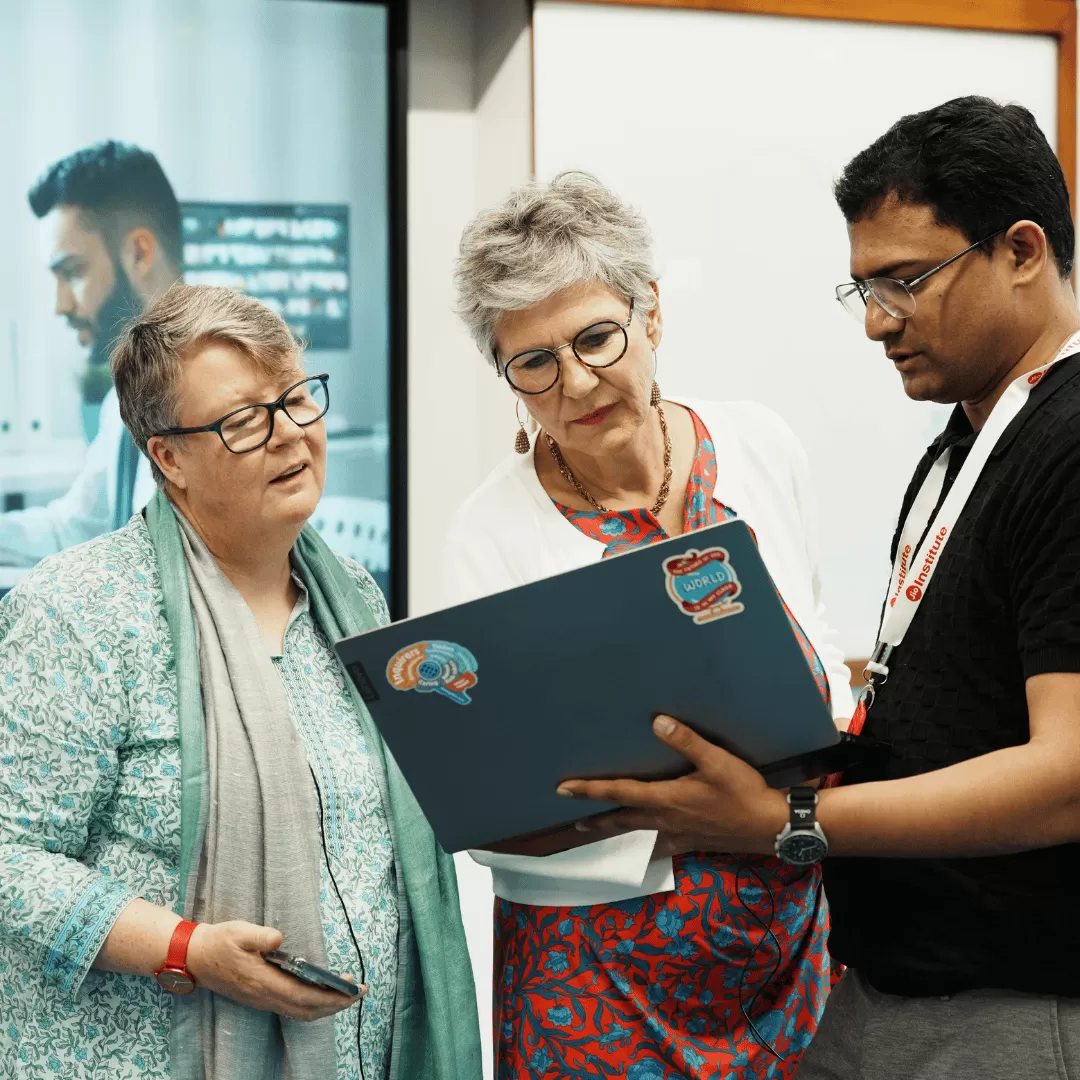ECIS MLP 2025: Transforming Educational Leadership Through Innovation and Collaboration


The campus became the epicenter of educational transformation as it launched the second edition of the ECIS Middle Leadership Programme in collaboration with The Educational Collaborative for International Schools (ECIS). The five-day residential teacher training programme brought together 80 dedicated educators, including 61 female participants, representing 49 schools across 14 Indian states and 11 educational boards.
Inauguration Day - June 16, 2025
The inaugural ceremony featured distinguished leaders including Mr. Abhimanyu Basu, Dean and CEO of Dhirubhai Ambani International School (DAIS), Mr. V.P. Joy, Senior EVP at Reliance Industries Limited, and Ms. Anju Wal, Director of Education at Shiv Nadar Schools.
Programme Overview
The intensive four-day curriculum was structured around two complementary courses designed to transform educational leadership capabilities. "The Culture of Leadership" focused on building foundational leadership competencies through self-awareness development, values alignment, and creating inclusive team cultures that thrive in uncertainty. "Managing & Embracing Conflict" reframed conflict as a catalyst for growth, equipping participants with practical frameworks for difficult conversations, change management, and collaborative decision-making.
The programme employed diverse pedagogical approaches including interactive case studies, reflective exercises, collaborative activities, and real-world scenario analysis. Key learning frameworks included Simon Sinek's "Start with Why," John Kotter's 8-step change model, Brené Brown's BRAVING trust framework, and the FBI Model for challenging conversations. Participants engaged with concepts ranging from the Shackleton leadership case study to practical tools like keystone conversations and the TERA Quotient, ensuring both theoretical depth and practical application.
Day 1: Foundations of Leadership Culture
The programme began with "The Culture of Leadership" session led by ECIS experts Ms. Helen Morgan and Ms. Sarah Kupke. Participants established crucial session protocols to create a psychologically safe environment, adopting the principle "What happens in Vegas stays in Vegas" alongside norms of open-mindedness, active listening, and mutual respect.
The day focused on three key areas: a) understanding middle leadership in a global context, b) exploring how vision and values shape inclusive team culture, and c) preparing leaders to embrace uncertainty. Through self-reflection exercises, participants examined "What type of leader am I, and what type of leader do I want to be?" The collaborative Culture Playbook exercise revealed that trust, consistent communication, and shared accountability form the foundation of thriving team dynamics.
A highlight was the Ernest Shackleton case study, which served as a powerful metaphor for leading through uncertainty, emphasizing resilience, adaptability, and courage. The Tennis Ball Challenge tested participants' agile leadership and decision-making under pressure, reinforcing that leadership is most visible during times of crisis.
Day 2: Building Accountability and Capacity
Day 2 shifted focus to intelligent accountability systems and capacity building. Participants explored how middle leaders can build trust-based responsibility that balances high expectations with professional autonomy. The concept of "Humility as a Lead Learner" was introduced, emphasizing personal reflection and growth as prerequisites for effective leadership.
A significant portion addressed managing high-stakes conversations through the FBI Model (Feelings-Behaviour-Impact) and navigating from the Drama Triangle to the Empowerment Triangle. Participants learned to transform Victim-Persecutor-Rescuer dynamics into Creator-Challenger-Coach relationships, fostering empowerment and accountability.
The Leadership Chalk Talk activity encouraged collaborative dialogue and knowledge sharing, while self-evaluation exercises helped participants identify specific areas for growth and development.
Day 3: Managing and Embracing Conflict
The third day marked the beginning of "Managing & Embracing Conflict”, with a fundamental reframing of conflict as a catalyst for innovation and growth. Participants explored emotional intelligence concepts and engaged in activities that revealed conflict as an inevitable but valuable part of organizational life.
John Kotter's 8-step change management model provided a structured framework for leading transformation, while Michael Fullan's Six Secrets of Change offered practical insights into sustainable organizational development. The session emphasized three core principles: relationships before strategy, moral purpose as a driving force, and collective capacity building.
Brené Brown's BRAVING model (Boundaries, Reliability, Accountability, Vault, Integrity, Nonjudgment, and Generosity) was introduced as a comprehensive framework for building and maintaining trust in professional relationships.
Day 4: Practical Conflict Navigation
The penultimate day focused on practical strategies for daily difficult conversations. Participants learned about the TERA Quotient (Tribe, Expectation, Rank, Autonomy) and the OODA Loop (Observe, Orient, Decide, Act) as frameworks for conflict resolution.
The concept of keystone conversations was introduced as proactive, relationship-building dialogues that prevent small tensions from escalating into larger conflicts. Participants practiced using helpful phrases and communication techniques, including "What are your best hopes for this conversation?" and "What would a win/win here look like?"
The Bahamian proverb "To engage in conflict, one does not need to bring a knife that cuts, but a needle that sews" became a guiding metaphor for constructive conflict engagement.
Day 5: From Conflict to Collaboration
The programme concluded with sessions on smart decision-making and values alignment. Participants addressed challenging scenarios such as navigating situations where personal values conflict with organizational directives. The powerful metaphor of the "first follower" demonstrated how leadership involves not just taking initiative but nurturing those who support the vision.
Closing Ceremony & Certificate Distribution
The programme culminated with a certificate distribution ceremony, graced by the presence of Dr. Palak Sheth, Project Director; Dr. Nilay Yajnik, Director & Professor, Executive Education and Mr. Pramod Jain, CFO, along with the programme instructors. 11 of the 80 participants received the ECIS Middle Leader Certification, for completing four of the ECIS Middle Leader programme modules, hitherto participating in Jio Institute’s first ECIS Middle Leader Programme in 2024, which offered the two courses; “Building and Leading Teams” and “Coaching & Leadership”.
The programme's impact was evident in the transformation from viewing conflict as disruption to embracing it as an opportunity for dialogue and growth. As participants prepared to return to their institutions, they carried with them practical tools, deeper self-awareness, and a network of professional connections that will support their ongoing leadership journey.
This intensive teacher training programme exemplified Jio Institute's commitment to scaling educational excellence across India, preparing middle leaders to bridge the gap between vision and practice in diverse educational contexts.
